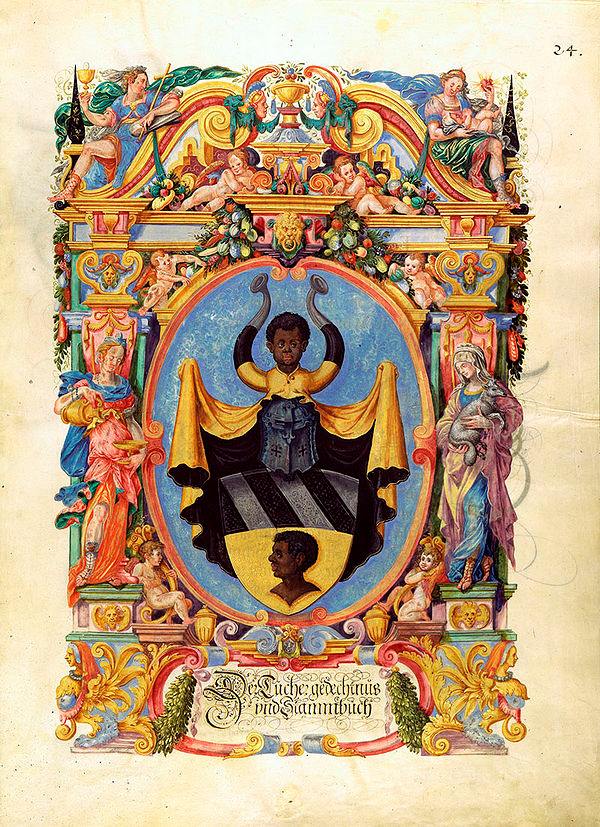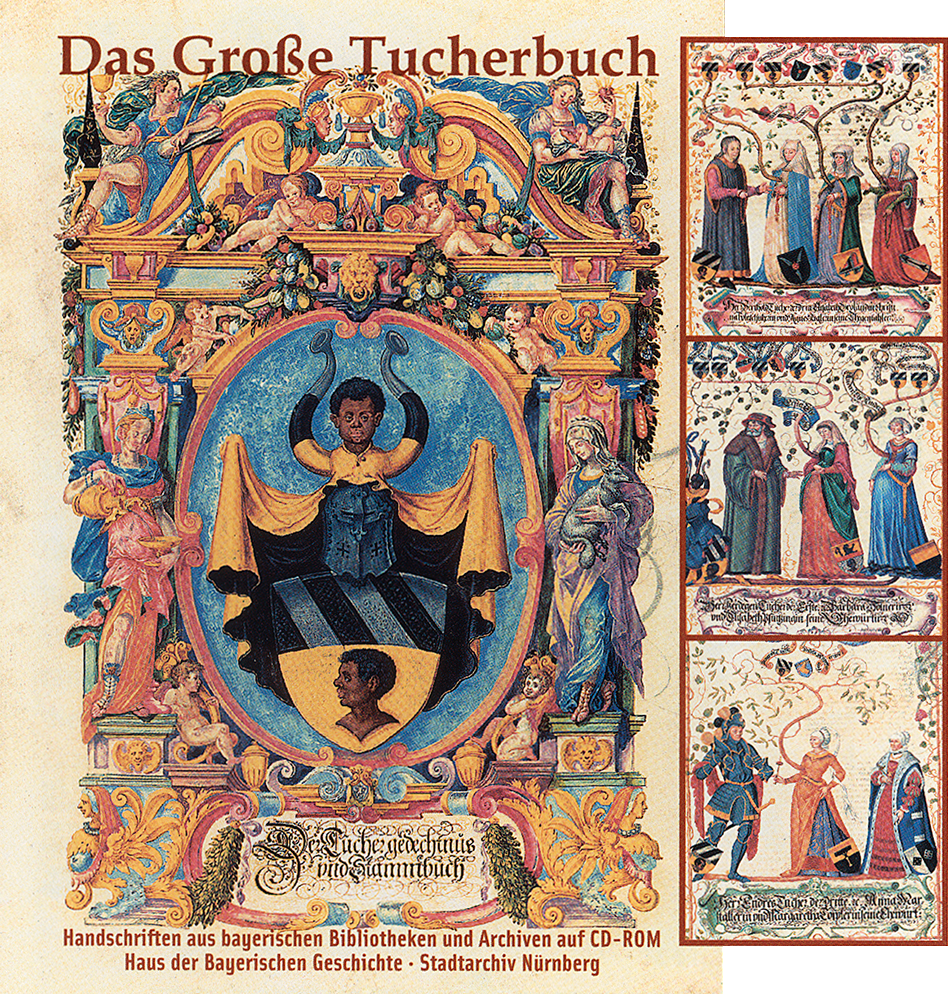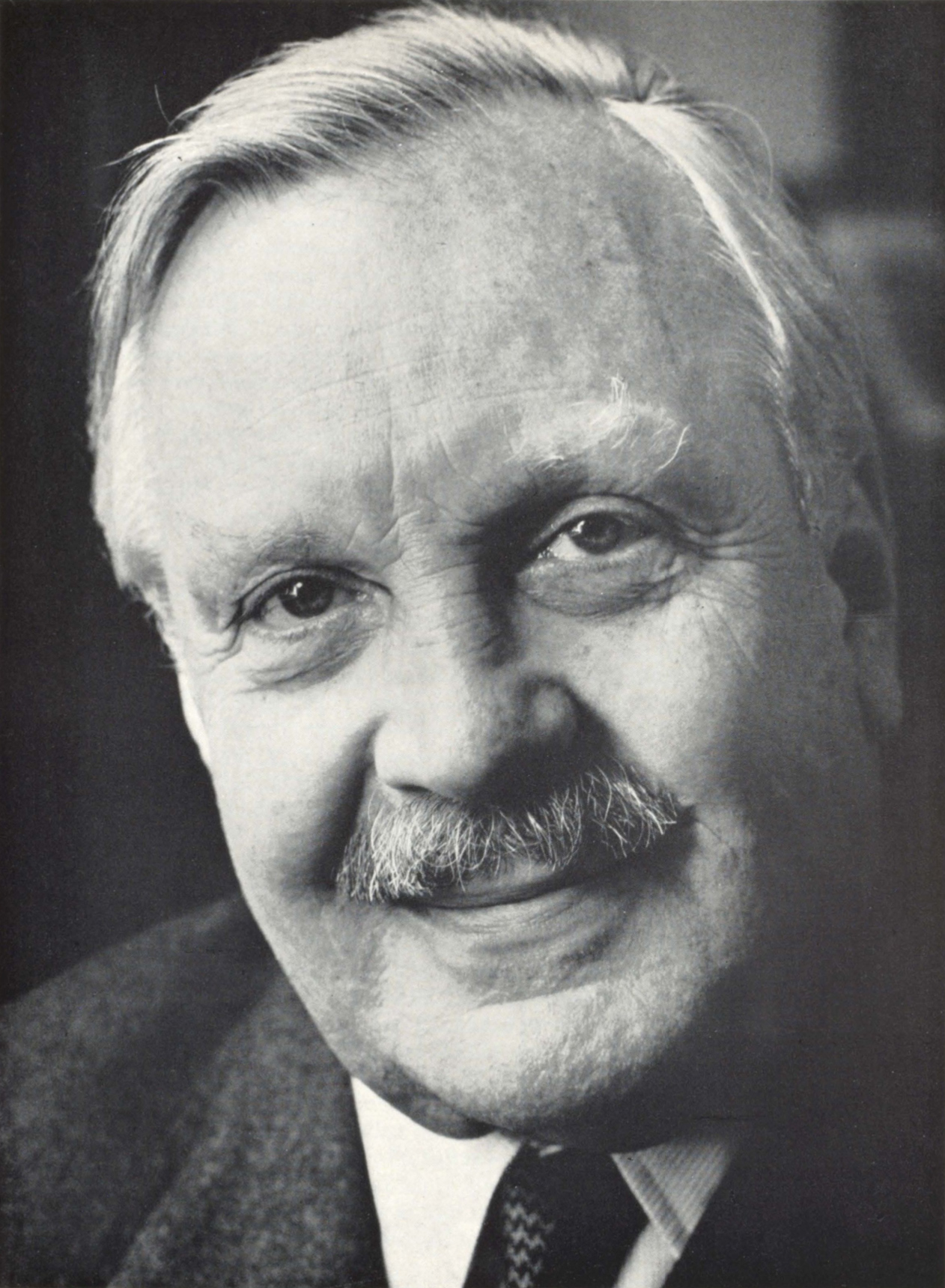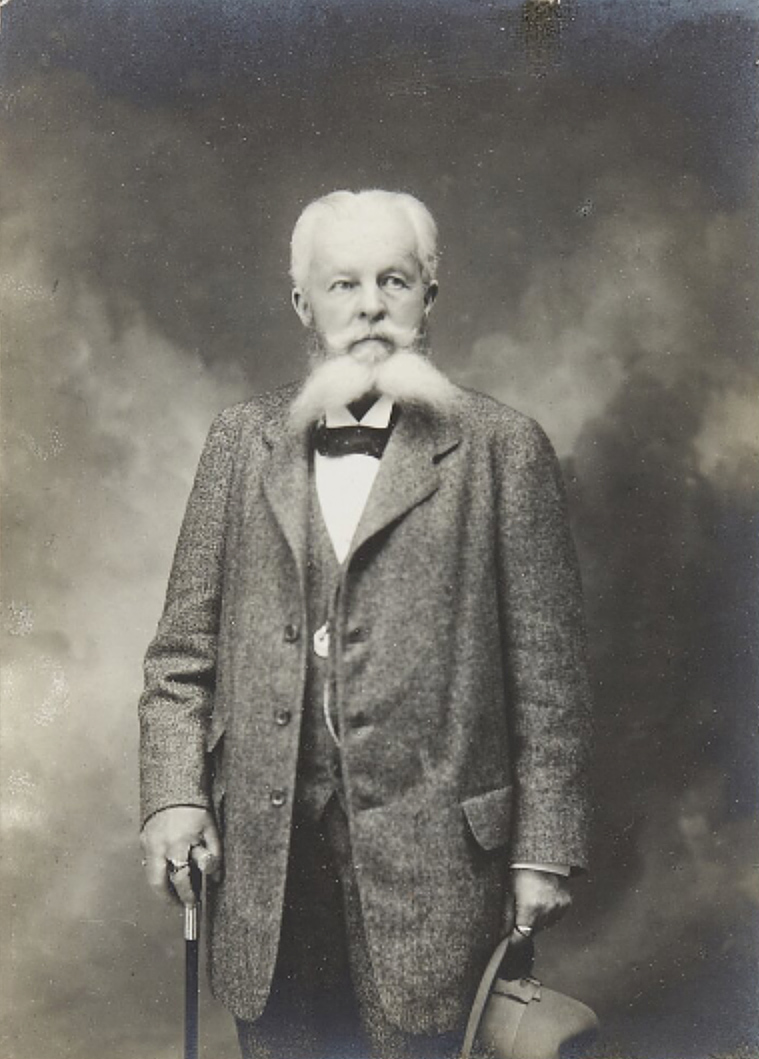THE TUCHER FAMILY
The documented roots of the Tucher family date back to the 14th century. The first mention of the name found in the chronicle of the city of Nuremberg comes from the year 1309. The chronicle describes the founder of the House, Bertold Tucher, as a noble merchant (patrician), citizen and member of the City Council of Nuremberg.
Analysing the family tree, it is clear to see that at its beginning the merchant family of Tucher was managed like a modern-day corporation, where each male family member was in charge of a specific part of the operations and was literally delegated to serve in one of the three areas: trade, city administration and, less often, church service.
Women in the family were entrusted with other functions, e.g. patron of art and culture. It was most probably due to the corporate structure of the family that the House of Tucher experienced a dynamic growth between the 14th and 15th century. In that period, the family thrived in the social and financial sphere.
Both the business and the family grew stronger not only owing to the commercial activities and functions in the City Council, but also due to carefully arranged marriages and joint companies with other influential German merchant families, e.g. the Scheruls, the Grolands or the Welsers.

The Tucher family’s coat of arms
Image: Das Große Tucherbuch, painted in the years 1590-1606, Nuremberg City Archives

The Tucher family’s coat of arms
Image: Das Große Tucherbuch, painted in the years 1590-1606, Nuremberg City Archives
The family business, developing successfully due to the above mentioned business activities and marriages, expanded and possessed affiliate companies in practically all large European cities. The Tucher family also grew stronger in the area of political influence. Possessing the unalienable right to sit in the City Council, the family had enormous influence on the development of Nuremberg, which was one of the richest cities in Europe at that time. In short, the medieval Nuremberg was a free or rather private city where power and profits were shared among the families that governed it. The house of Tucher was one of around 20 of such families. The economic and political domination of the Tucher family was stopped by the Reformation and the consequent economic crises. The Reformation movement in the church significantly divided the family as its members abandoned Catholicism in favour of Protestantism or Lutheranism.
The religious division of the family weakened its influence to a great extent. Internal changes undermined both the family business and its role in the society. Divided into religious and national factions, the Tuchers lost their incredibly strong position. Further analysis of the family tree indicates that individual parts of the family started specialising in trade, food production, mining, administration and diplomacy as well as financial services.
Each of them began developing their own specialization, e.g. the Catholic part of the family from Antwerp, lead by Lazarus Tucher (1491-1563), specialized in trading precious stones. Lazarus and his descendants copied the corporate family model and quite quickly gained prominent positions in Antwerp’s administration. Members of this part of the family became Mayors of Antwerp three times. The Viennese part of the family specialized in the production of goods made of gold, mining and financial services. In short, the Tucher family delivered many influential citizens who went down in history as Mayors of Nuremberg and Antwerp, ambassadors, consuls, civil servants in the rank of ministers, bankers, entrepreneurs being part of the board of directors in the largest German companies and banks as well as officials of international organizations.
Several family members who lived at the break of the 19th and 20th century are listed below:
Heinrich Freiherr von Tucher (1853–1925)
diplomat in the rank of the ambassador of Bavaria in the Kingdom of Italy.
Heinrich Freiherr von Tucher (1875–1962)
diplomat, attaché and ministerial resident – ambassador in Paris, St Petersburg and Vienna (cousin).
Hans Christoph Freiherr von Tucher (1904–1968)
banker, attorney, member of the board in Bayerische Vereinsbank, chairman of the board in the German National Museum, member of organizational bodies in Siemens & Halske AG, Allianz Versicherungs AG, Vereinsbank and Norddeutsche Kreditbank. He was a personal assistant and financial trustee to Theodor Heuss, the President of West Germany. In recognition of his services in Bavaria and Munich, a Munich city park was named after him (Tucher Park).

Hans Christoph Freiherr Tucher Von Simmelsdorf
Image: journals.ub.uni-heidelberg.de
Eleonore Freifrau von Tucher (1916–2007)
vice president of the German Red Cross, founder of the Oldenburg publishing house, member of the German Bundestag, Head of the Parliamentary Commission for Charities, Head of the Bavarian Association of Women. The Oldenburg publishing house is most probably a reference to the family estate in Oedenburg and indicates the family line: the Tuchers of Groland.
Maximilian Tucher von Simmelsdorf
entrepreneur, patron of the arts, diplomat in the rank of consul in Malta (the person of Maximilian Tucher von Simmelsdorf has been described separately).

Hans Christoph Freiherr Tucher Von Simmelsdorf
Image: journals.ub.uni-heidelberg.de

